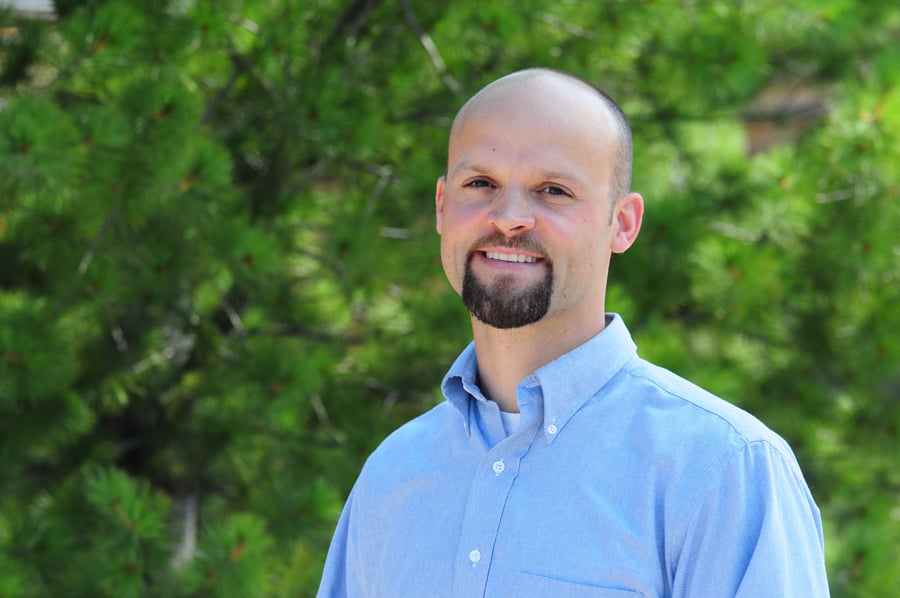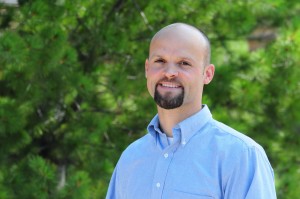by Jennifer Donovan, director of public relations
Often touted as the greatest environmental achievement of the 20th century, the North American Model of Wildlife Conservation is anything but, according to wildlife ecologists and environmental ethicists from Michigan Tech and Michigan State University.

Writing in the Summer 2011 issue of the journal, The Wildlife Professional, John Vucetich and Joseph Bump, Michigan State’s Michael Nelson, and Canadian environmental scientist Paul Paquet call the North American Model of Wildlife Conservation seriously flawed. The commentary is the first critique that the North American model has faced.
This model has been around as an idea for about a decade, and in that time it has become quite popular among some wildlife professionals. The model consists of two related approaches to conservation: a historical description of past conservation efforts and an ethical prescription for the future. “One rests upon an inadequate account of history and the other on an inadequate ethic,” Vucetich and Nelson say flatly.
The model’s misconception of history gives recreational hunters the sole credit for preventing the ravages of wildlife exploitation caused by commercial hunting in the 19th century. It cites the efforts of famous hunters such as Theodore Roosevelt.

“Recreational hunting was only one of several important factors that led to improved conservation in North America,” the authors say. Since the 1960s, they point out, conservation efforts have been led by non-hunters and nature enthusiasts, such as national park visitors and bird-watchers.
The historical narrative crediting recreational hunters with spearheading the drive for wildlife conservation in turn becomes the rationale for a belief that recreational hunting is necessary for wildlife conservation. Then that becomes a prescription for future conservation efforts.
The entire construct is misguided, say Nelson and Vucetich. “The principle of past behavior is not, by itself, an appropriate justification for future behavior,” they explain. “Would you argue that society should perpetuate slave labor or gender discrimination simply because such practices are part of our history? Likewise it is wrong to conclude that hunting should play a central role in future conservation efforts, simply because it has in the past.”
The scientists also express concern that the interests of recreational hunters sometimes conflict with conservation principles. For example, they say, wildlife management conducted in the interest of hunters can lead to an overabundance of animals that people like to hunt, such as deer, and the extermination of predators that also provides a vital balance to the ecosystem.
Vuetich and Nelson examine the seven tenets of the North American Model of Wildlife Conservation:
-
- Wildlife is held in the public trust.
- Commerce in dead animals is illegal.
- Wildlife use is allocated through law.
- Hunting is an opportunity for all.
- Wildlife may only be killed for legitimate reasons.
- Wildlife is an international resource.
- Science is the basis for wildlife protection.
Consider the tenet that says wildlife may only be killed for legitimate reasons,” the authors observe. “This principle is as basic and appropriate as it is void of useful insight about defining a legitimate purpose. The North American Model provides no further insight about what counts as legitimate,” they note.
The scientists also raise a question about the final tenet, that science is the basis for wildlife protection. “This equates a desire for policies informed by science with science itself determining what policies ought to be adopted,” they say. “Scientific facts about nature cannot, by themselves, determine how we ought to relate to nature or which policies are most appropriate.”
The authors emphasize that they have nothing against hunting. “If the North American Model’s primary motivation was to promote hunting, and even if it did so transparently, the model would still fall short,” they say.
The model’s greatest value, Vucetich and Nelson say, is that it calls attention to the need to confront a more basic question: What is conservation? “All of us should explore whether wildlife management and conservation are the same or whether they represent different, occasionally conflicting goals,” they suggest. “We still need answers for key questions like: What does it mean for a population or ecosystem to be healthy? How does conservation relate to or conflict with other legitimate values, such as social justice, human liberty and concern for the welfare of the individual? Resolving these and other questions could provide a truly meaningful conservation model.”
Associate Professor John Vucetich and Assistant Professor Joseph Bump, members of the Conservation Ethics Group (CEG), were recently awarded the 2011 Michigan State University Phi Kappa Phi Excellence Award in Interdisciplinary Scholarship . The award specified the highly unique collaboration between the social and ecological sciences with ethics, the large amount of community engagement, and the highly productive research and publication record of CEG members as especially impressive and the main reasons for the award.
This summer, the Summer Undergraduate Research Fellowship (SURF) will support 23 students from across the University with funds from the Vice President for Research, the Honors Institute and the Biotechnology Research Center (BRC). The total funding for the program this year is $74,300.
The recipients, their major, membership in the Honors Institute (HI) and advisors from the School of Forest Resources and Environmental Science are:
Alex Mehne (Forestry), Associate Professor Andrew Burton, Performance of Non-local Tree Species Planted in Baraga County, Michigan.
Auriel Van Der Laar (Wildlife Ecology and Management, HI), Assistant Professor Joseph Bump, Developing Morphometrics Models to Predict the Sex of King and Virginia Rails.
Katherine Waring (Civil and Environmental Engineering, HI), Assistant Professor Rodney Chimner , Sleeper Lake Fen Restoration: Modeling Water Flow Patterns and Water Chemistry.
The Ecosystem Science Center has announced the recipients of its 2010 Fall Graduate Student Travel Grants. Following is the list of recipients and their advisors.
- Sinan Abood, Environmental Engineering (Ann Maclean, SFRES) received $500 to attend and instruct a special session at the ASPRS/CaGIS 2010 Fall Specialty Conference in Orlando, Fla., from Nov. 15-19.
- Ruth Bennett, Applied Ecology (Joseph Bump, SFRES) received $421 to attend the XIV Congreso de la Sociedad Mesoamericana para le Biologia y la Conservacion in San Jose, Costa Rica, from Nov. 8-12.
- Marcella Campione, Forestry (Linda Nagel, SFRES) received $500 to present a poster at the Society of American Foresters National Convention in Albuquerque, N.M., from Oct. 27-31.
- Nan Davis, Forestry (Robert Froese, SFRES) received $500 to present a poster at the Society of American Foresters National Convention in Albuquerque, N.M., from Oct 27-31.
- Kevyn Juneau, Forestry (Catherine Tarasoff, SFRES) received $500 to give a talk at the MN/WI Invasive Species Conference in St. Paul, Minn., from Nov. 8-10.
- Laura Kangas, Applied Ecology (Rodney Chimner, SFRES) received $500 to give a talk at the Wetlands in the Landscape Meeting of the Wisconsin Wetland Association, in Baraboo, Wisc., from Feb. 16-17.
- Trevor Roberts, Forest Ecology and Management (Robert Froese, SFRES) received $500 to present a poster at the Society of American Foresters National Convention in Albuquerque, N.M., from Oct. 27-31.
- Agustin Robles-Morua, Environmental Engineering (Kathy Halvorsen and Audrey Mayer, SS) received $500 to give a talk at the American Geophysical Union in San Francisco, Calif., from Dec. 13-17.
- Shawna Welsh, Applied Ecology (Thomas Pypker, SFRES) received $500 to give a talk at the Midwest Fish and Wildlife Conference in Minneapolis, Minn., from Dec. 12-15.
- Nick Windmuller, Forestry (Robert Froese, SFRES) received $500 to present a poster at the Society of American Foresters National Convention in Albuquerque, N.M., from Oct. 27-31.
- Rosa Flores, Environmental Engineering (Judith Perlinger, CEE) received $500 to present a poster at the American Geophysical Union in San Francisco, Calif., from Dec. 13-17.
